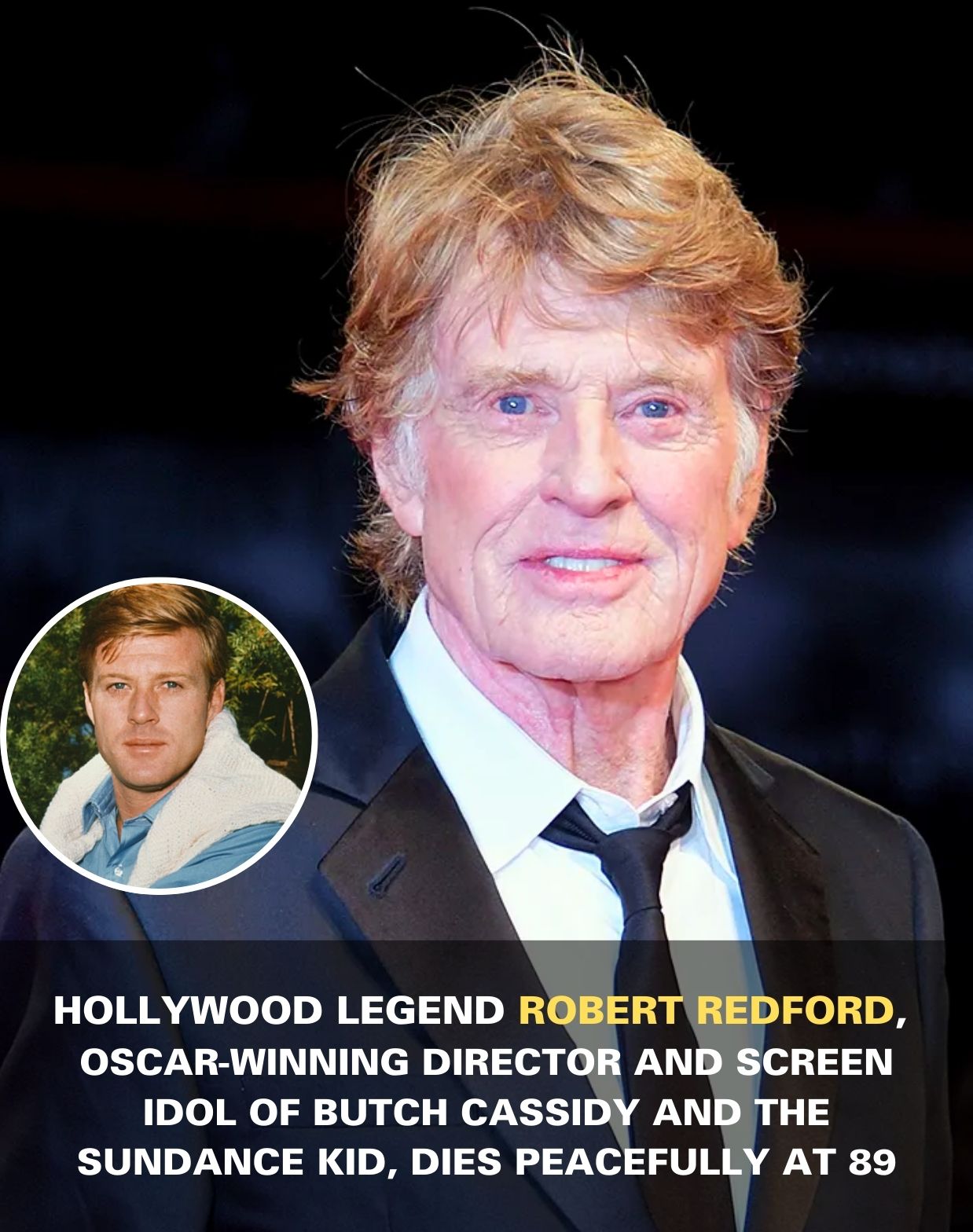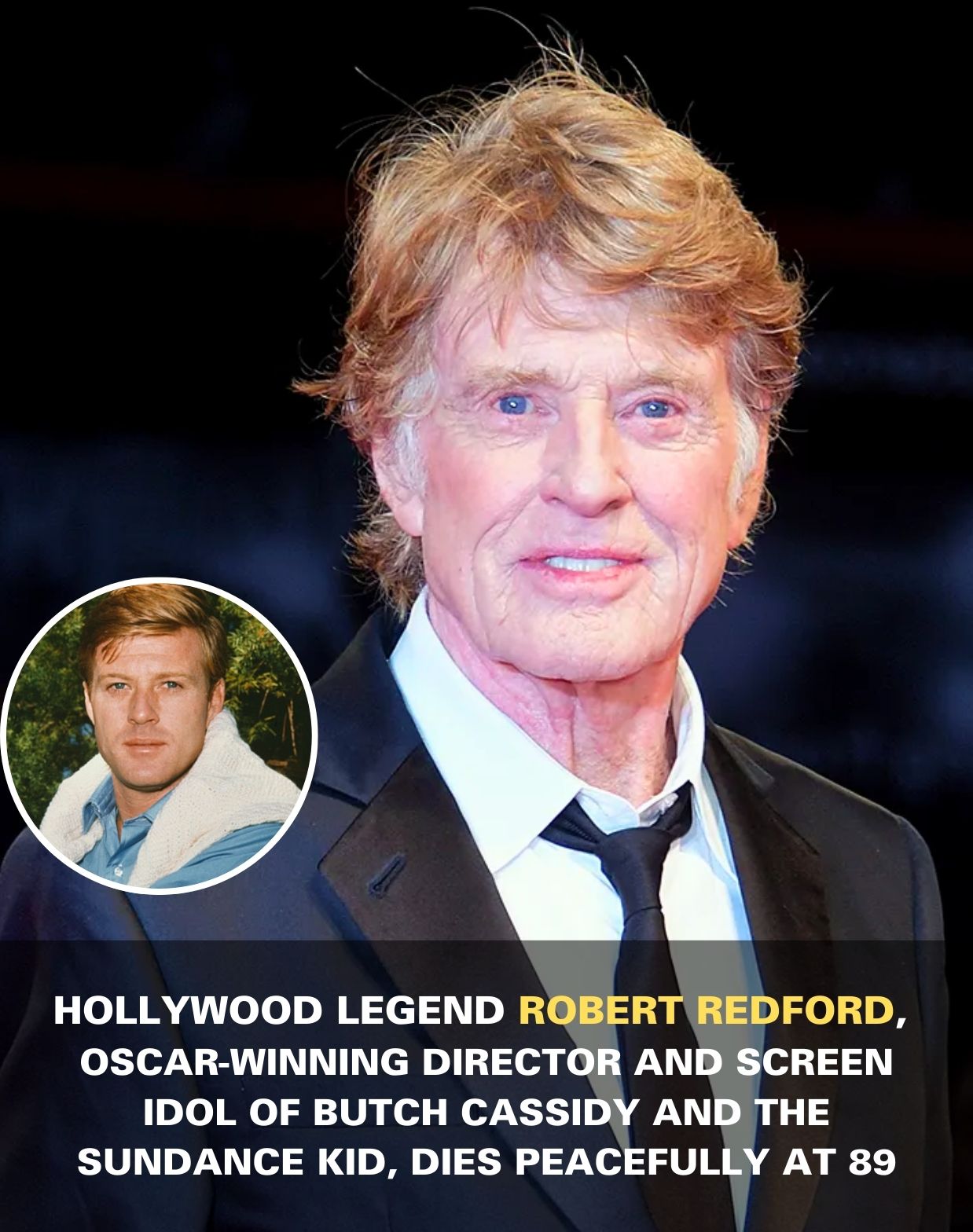
The film world fell quiet as news spread that Robert Redford, the Oscar-winning director and screen icon, has died peacefully at his home in Provo, Utah. He was 89.
To generations, Redford was more than a face on the screen. He was a quiet force who changed how films are made and who gets to make them. From his breakout pairing with Paul Newman in Butch Cassidy and the Sundance Kid to his Academy Award-winning turn behind the camera in Ordinary People, his work shaped modern cinema.
He was born Charles Robert Redford Jr. and did not come from privilege. A lost baseball scholarship pushed him into the arts. That twist of fate steered him to acting, and then to directing and to building institutions that would lift others.
Early television and stage work led to Hollywood roles. His charm in Barefoot in the Park and his cool, defiant energy in Butch Cassidy made him a household name. The Sundance Kid became an image that would follow him his whole life — and lend its name to the movement he would create.
In later decades, Redford broadened his reach. Films like The Way We Were, All the President’s Men and Out of Africa showed range. He could be romantic, haunted, defiant, or moral. He brought depth to parts that could have been simple. Then he turned to directing. When Ordinary People won him the Academy Award for Best Director, critics and colleagues said it confirmed what many already felt: he was a storyteller not limited to acting.
His greatest legacy may be the Sundance Institute and the Sundance Film Festival. What began as a small gathering in Utah grew into the home of independent film. Young directors found an audience there. Risky voices found a stage. The industry was forced to listen. For many filmmakers, Sundance was the first and most important door to open.
He also cared about the natural world. Redford was a lifelong environmentalist. He fought to protect wild places and campaigned for conservation. He linked art and activism. He believed films could illuminate civic life and nudge change.
Those who knew him or worked with him speak of a generous man, one who pushed others forward. Tributes arrived from peers and protégés. The mood was one of deep gratitude and sudden loss.
“Don’t look at your career as anything that’s gained momentum over time. Just keep going forward and focus on the future,”
“He built a home for daring voices and gave countless filmmakers their first chance,” said Keri Putnam, former executive director of the Sundance Institute.
Redford’s life was marked by reinvention. He could be the outlaw on horseback, the romantic across a table, the dogged reporter unraveling a conspiracy, or the director guiding fragile family drama. Each role carried a plain honesty. Audiences felt it.
Numbers do not capture all of it. Six decades in the public eye. A career that crossed stage, screen and the festival circuit. A festival that changed how indie films find audiences. A record of activism that put conservation on the map for many viewers. And a private life that, even in later years, refused easy nostalgia.
For older moviegoers, his films are touchstones. They recall lovers and losses, politics and trust, nature and obligation. For young filmmakers, his work at Sundance opened opportunities that otherwise might not have existed.
The world now holds those films and the festival he built. The man who once said that one should always keep moving forward leaves behind a field of work that will keep moving for years to come — a legacy that lives on in movie houses, classrooms, and the wide places he fought to save.
